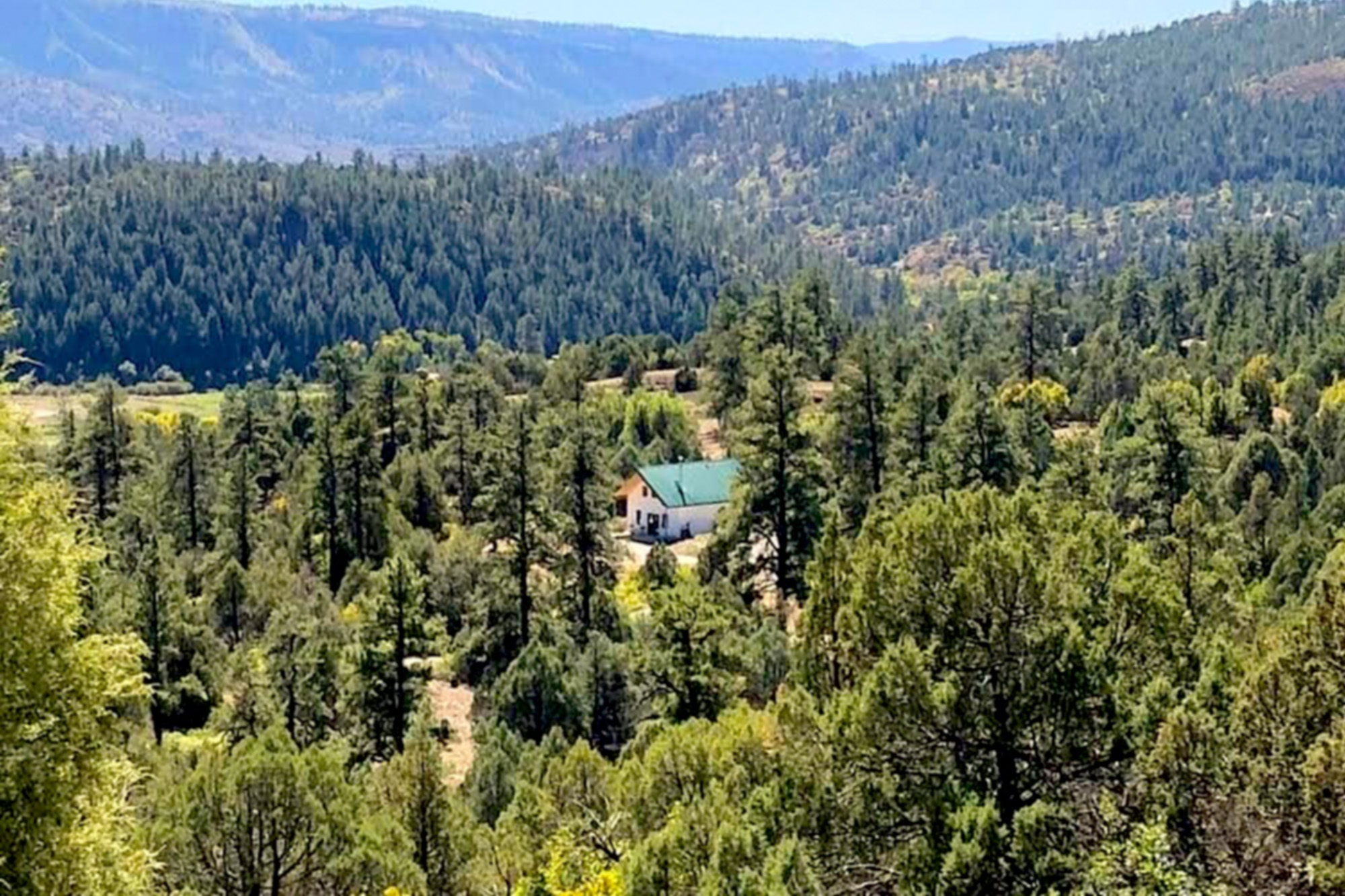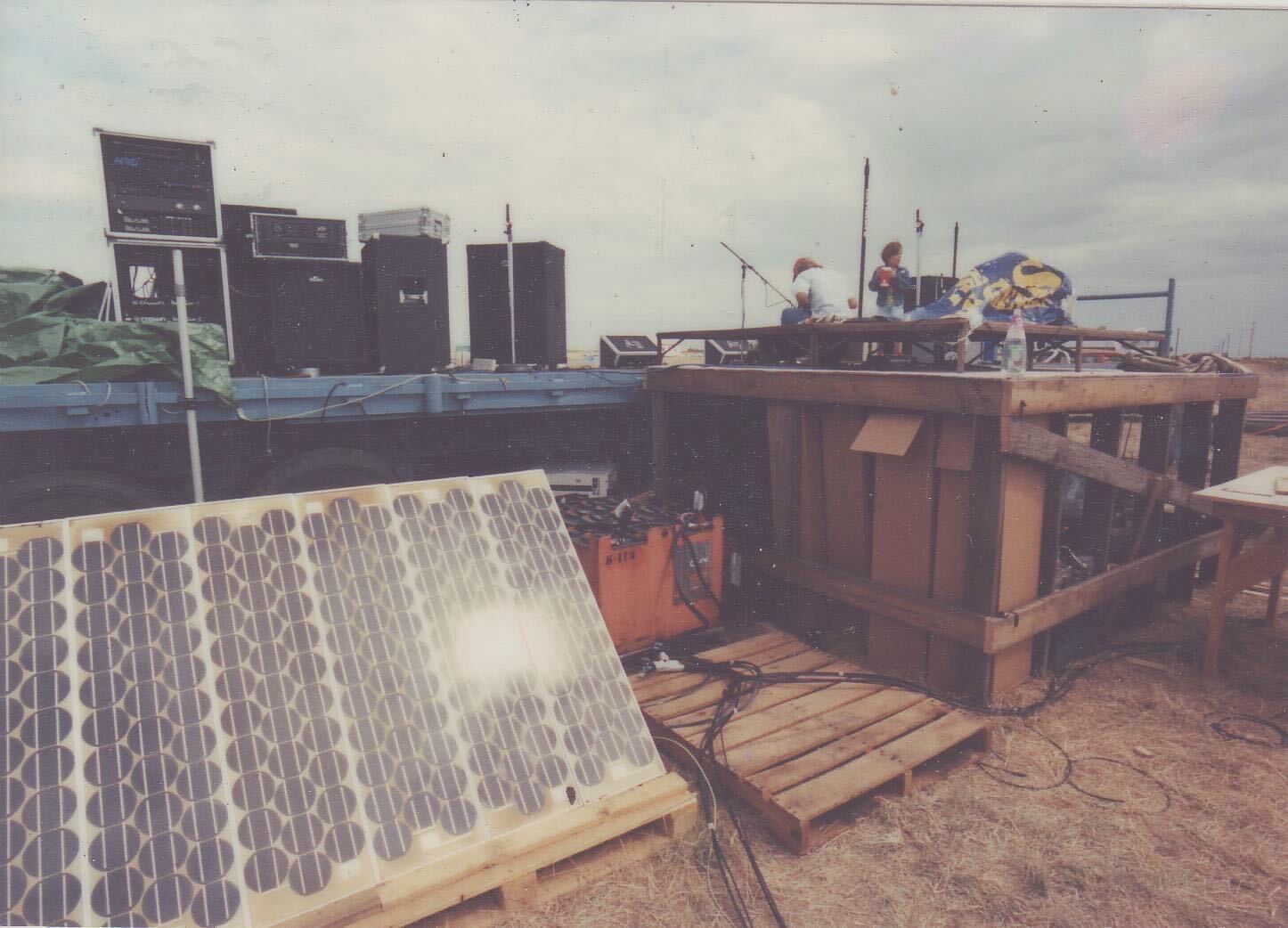We use cookies on our website.
Some of them are necessary for the functioning of the site, but you can decide about others.

Lumin Technical Support representative, Kenny Grigar is no stranger to the off-grid lifestyle. Not only has he chosen to live off-grid in his self-made microgrid for 20 years, but he’s also made a habit of helping Lumin customers make their own transition towards energy independence. In fact, we have a nickname for him here at Lumin – off-grid Kenny.
We recently sat down with Kenny and asked him for a few tips to help those looking to become less dependent on their local power grid.
Living sustainably is important to me, so much so that it has played a central role in everything I do. This includes my hobbies and career. I distinctly remember the day everything really clicked for me. I was in a band, and we were asked to play a concert powered by only solar. In fact, I had a hand in installing the solar panels for the event. Experiencing the power and positive impact behind this eco-friendly gig made me realize that I wanted this to be a part of my life. I knew that as soon as I could buy my own remote piece of land, I’d be going off-grid. I’ve now enjoyed two decades of off-grid living and I have no plans to change that.

In my experience, I’ve found that people decide to live off-grid for different reasons. Some want to become completely self-reliant, like homesteaders, and others seek a more sustainable lifestyle. There are also people that simply don’t have access to the grid. In any case, there’s a great community of people willing to share their experiences. I know they’ve helped me a lot over the years.
Every person that has gone off-grid will tell you to do your research. The more prepared you are, the higher your rate of success. Your best bet is to find an expert that can go over your goals and suggest how they’ve reached their own personal wins.
I suggest that you kick things off by thinking about where you’ll be getting your electricity from. For example, if you decide to install solar panels, you’ll need to have a way to access solar energy at night. It may go without saying, but a solar battery is great for storing the excess energy you generate for later use. The great news is that batteries are becoming increasingly affordable. It is worth noting that you can get battery backup without solar power. In fact, FranklinWH offers batteries for use with non-grid setups and recently put together a very comprehensive guide on the subject.
Another option is a generator. However, it can be expensive to run throughout the day. No matter which solution you go with, you’ll have to come to terms with the fact that your power supply will always be limited. That's why it's important to use appliances and smart home technologies that will help you manage the supply you do have.
Setting up a sustainable system that generates electricity for your home can really make or break things. As a result, I find homeowners opt for multiple batteries to get them through the day. It’s hard to get all you need with a single battery. As you can imagine, this can become a costly investment.
Then there’s the issue of nuisance tripping. Nuisance tripping occurs when multiple electrical loads run simultaneously and exceed your solar battery’s maximum power threshold. The result is your inverter will shut down and you’ll lose power. What’s worse is that nuisance tripping is a frequent issue for most off-gridders. The more tools we have to help manage our power supply, the better.
Energy management systems make a lot of sense for off-gridders. Basically, they work with your solar battery or generator to help you conserve energy, while still powering your top appliances. When it comes to load management, I highly recommend the Lumin Smart Panel. It’s really user-friendly, and honestly, it’s just a high-quality product. You can use the Lumin app to set power limits and prioritize which loads are most important to you. Then, you can reprioritize loads as your needs change, which is extremely handy when you get in an energy pinch.
The Lumin Smart Panel works by automatically managing all of your loads to keep you powered throughout the day on a single battery. Yeah, you heard that right. And, if you happen to exceed your power threshold, it will deactivate any loads you set as a lower priority until more energy is available.
One of my favorite features is the ability to set custom battery state of charge settings. This allows you to choose when certain loads will shed based on what percentage of energy you have left in your battery. It’s super convenient and gives you maximum control over your energy use. And all of this is possible through Lumin’s off-grid integrations for battery state of charge with EG4 and FranklinWH.
Okay, so I’m a little biased here but I truly believe that the Lumin Smart Panel is an ideal companion for anyone living remotely or off-grid. For one thing, it offers local control, meaning you don’t need to rely on the cloud to effectively manage your energy use. This is a big deal for obvious reasons. The Lumin Smart Panel can also take on energy management with circuit scheduling, one of my least favorite tasks. If there’s a time of day that you want to deactivate heavier electrical loads, you can set the Lumin Smart Panel to automatically do it for you. This is a huge help at night when power the power supply is often more limited. The last thing I’ll mention is that I appreciate that the Lumin Smart Panel is designed, engineered and assembled in Virginia. I know it’s important for most off-gridders to invest in businesses that make an effort to keep things local. I’m proud to say that Lumin is one of those businesses.
To learn more about what separates the Lumin Smart Panel from the rest of the pack, you can check out Lumin's blog post on the matter.
There’s a lot that goes into the commitment of living fully on the energy you generate. Our team is happy to make your energy transition an easier one. Browse through our spec sheets to learn more about the Lumin Smart Panel or reach out to our sales team for a demo.